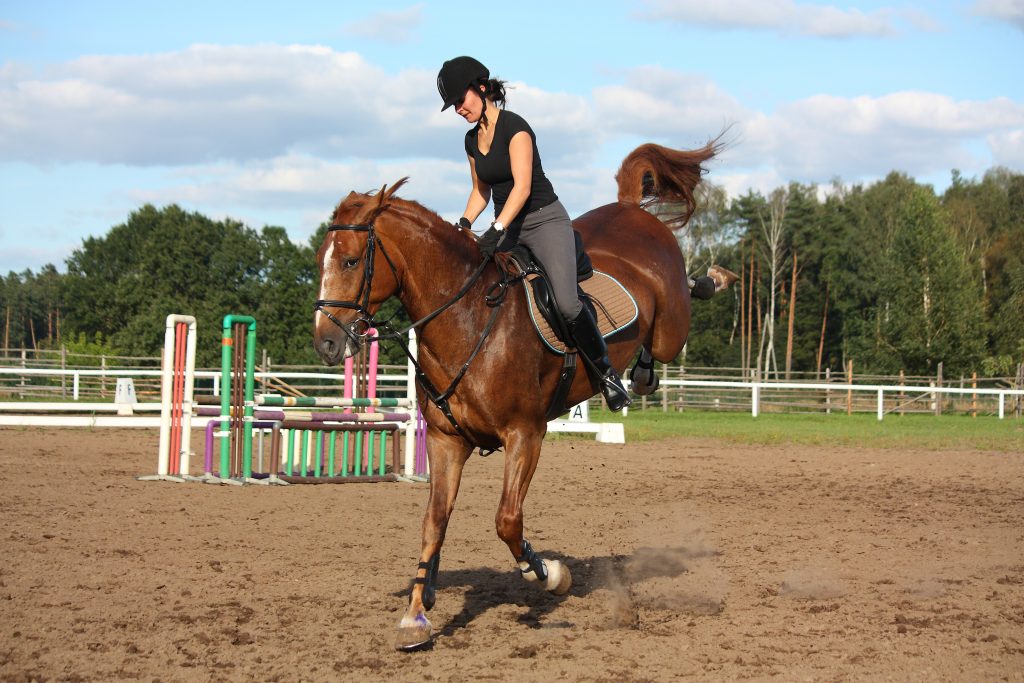Services
Dentistry Care in Horses
By Dr Callum Macleod-Andrew, BSc BVSc MRCVS of Stride Equine Vets
Equine dentistry is an essential aspect of horse health and well-being, ensuring that your horse’s teeth are properly maintained for effective chewing, digestion, and overall comfort.
Importance of Dental Care in Horses
Horses’ teeth grow continuously throughout their lives, and their chewing habits (grinding) wear the teeth unevenly. Over time, sharp points, hooks, or malocclusions (misalignments) can develop, leading to a range of problems, such as:
- Difficulty eating or chewing
- Quidding – dropping balls of roughage
- Weight loss and poor body condition
- Behavioural issues, such as resistance to the bit or discomfort when ridden
- Oral pain, ulcers, or infection
- Colic and other digestive issues due to improper chewing and digestion
Regular dental care, including routine floating (the filing or smoothing of teeth), helps prevent and remove these problems and ensures a horse’s mouth is healthy and pain-free.
Battery-Powered Dental Equipment
At Stride Vets we’ve invested in the latest battery-powered dental equipment, which is becoming the standard in modern equine dentistry as they enhance the efficiency, precision, and safety of dental procedures, allowing us to provide better care for horses.
We use our battery-powered floats to file or remove sharp points and correct dental abnormalities using a rotating abrasive head. The power and precision of these tools help us reach all areas of the horse’s mouth, including the back molars, which are often difficult to access with hand tools. The reduced procedure time means less stress for the horse, and the precision of the power float helps prevent the removal of too much tooth material. The rasp heads are controllable and manoeuvrable, helping to protect soft tissues such as the cheeks and gums.
Procedure:
Sedation: All horses should be sedated before dental procedures to ensure they remain calm and relaxed. Sedation reduces the risk of injury to the horse and handler and allows for more precise and thorough work. Furthermore, it allows full and uninterrupted visualisation of all the teeth and other areas of the mouth with a dental mirror, ensuring no areas are missed.
Mouth Speculum: A speculum is placed in the horse’s mouth to keep it open, so that we can inspect all teeth and access hard-to-reach areas. The speculum also prevents the horse from biting down during the procedure.
Oral Examination: We will perform a thorough oral examination, checking for abnormalities such as sharp points, hooks, waves, or steps in the tooth surface. The gums, cheeks, and tongue are also inspected for ulcers or signs of injury caused by dental issues.
Diagnostics: In some rare cases, we may recommend dental X-rays to assess underlying tooth root issues, fractures, or abscesses that cannot be seen during the routine exam.
Power Float Application: We will use the equipment to grind down sharp points and smooth rough edges. A rotating disc or burr is applied gently to the horse’s teeth to remove any sharp enamel overgrowths that may cause pain or interfere with normal chewing.
Correction of Malocclusions: In cases of misaligned teeth, the power float can be used to restore proper alignment, which improves the horse’s ability to chew effectively and prevents future dental problems.
Reduction of Hooks and Ramps: Power floats are especially useful for removing larger dental abnormalities such as hooks (sharp projections on the front or back of molars) or ramps (uneven tooth wear that causes high spots on molars).


Post-Procedure Care:
Recovery from Sedation: After the procedure, the horse is allowed to recover from sedation in a quiet and safe environment. Recovery usually takes about 30-60 minutes, depending on the type of sedation used.
Monitoring for Complications: After dental work, your horse should be monitored for any signs of discomfort, difficulty eating, or swelling, which could indicate complications.
Considerations and Potential Challenges
- Sedation Risks: As most horses require sedation during dental procedures, there is always a small risk associated with the use of sedatives. However, these risks are minimal when administered by an experienced veterinarian.
- Noise Sensitivity: Some horses may be sensitive to the noise produced by the power float, although sedation generally mitigates this issue. At Stride we use the quietest rotary machine on the market to reduce any distress.
Conclusion
Routine dental care using these advanced tools helps prevent painful oral conditions ensures better chewing and digestion and promotes the overall health and well-being of horses. We recommend regular check-ups and treatment, ideally every 6 months but certainly every 12 months.

Call to ask any question
01420 551 365
Equine Services
Your Trusted Equine Partner
Expert veterinary care for horses in Surrey, Hampshire and the surrounding areas.

